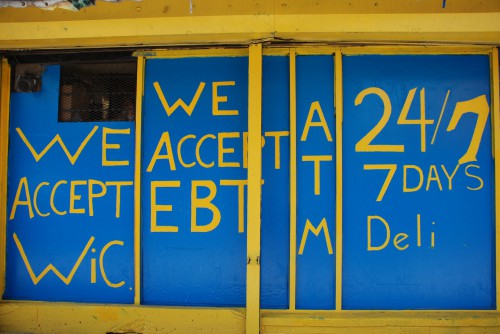According to a new report by the Brookings Institution, Boston is one of the four U.S. cities where the income of the wealthiest households are at least 15 times larger than the incomes of the poorest 20 percent.
This gives Boston the fourth largest gap between the rich and the poor among the country’s 50 largest cities. Only Atlanta, San Francisco and Miami had a wider income barometer of earnings.
The city of Boston has a population of over 500,000 – a note to visualize just how many are left on the lower side of income gap.
According to The Boston Globe, analysts have studied that technology, life science and financial services helped the city during trials of financial struggles and stalled unemployment from becoming too high to contain.
If the homeless individuals of various age groups that we see, walk by and actively ignore were not enough of an example of how wide the financial divide in this city is, then this new report should shed some new light on the problem.
According to the report, the wealthiest households have the potential to earn an average of $224,000 annually while the lower-income families could be facing $14,600 a year.

(Photo by Flickr user Eric__I_E)
This is devastating – especially in a city that prides itself so wholly on its image.
There are currently states that may be implementing a law that would require drug testing for any food stamp recipients – under the assumptions that everyone using them feel entitled and are abusing the aid. This plays into the stigmatic system that casts a shameful eye onto those in the poverty pool. Think if such a system was put into motion in Boston? A city where people already do their best to pretend the problem does not exist in order to go about their day-to-day lives without any outsider concerns.
Poverty is a nationwide problem that people deal with to variable degrees of success, but for now our discussion needs to take place on the home front.
There should be a wish to eliminate the tolerance of poverty and to get rid of the unquestioned privilege of the wealthy and elite.
According to the report, Boston is definitively worse in regards to the fact that our inequality has worsened since the great recession.
The conversations surrounding the topic have concerned themselves with upbringing, schooling and how it correlated to the income of the earning families.
A study by Northeastern University found that 55 percent of workers with less than a high school diploma, and whose total earnings were less than $20,000, were either unemployed, underemployed or no longer searching for jobs. This showcases just how hopeless unemployment can seem to those who have fought it.
Despite the wealthy being hit by the recession, it did not shrink the gap because the lower-income households were simultaneously losing-equalizing the equation.
There is a trajectory for those of whom lucky enough to be provided with financial stability. Typically, this predetermined course of direction begins at a very young age. Seemingly arbitrary factors such as your gender, your sexuality, your race or religion or where you grew up due to even more pre-destined courses can greatly affect your earnings.
The Boston income gap is hardly surprising but it is a task that should be solved with a determined resolve. We cannot allow Boston to be cast with such an ugly shadow.







